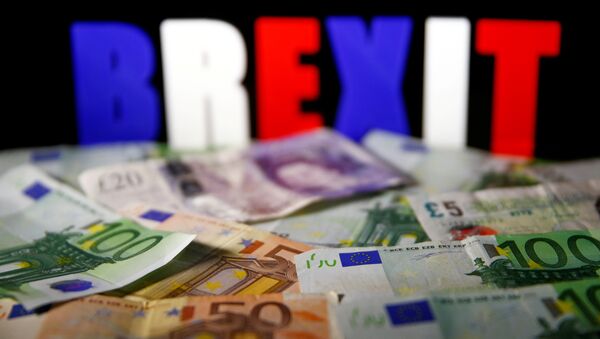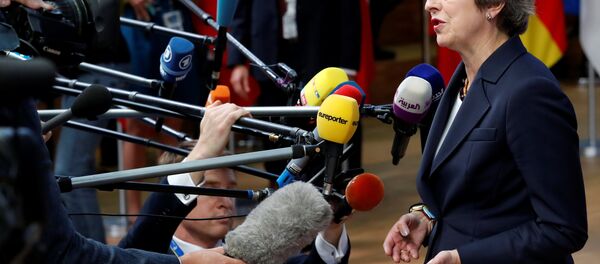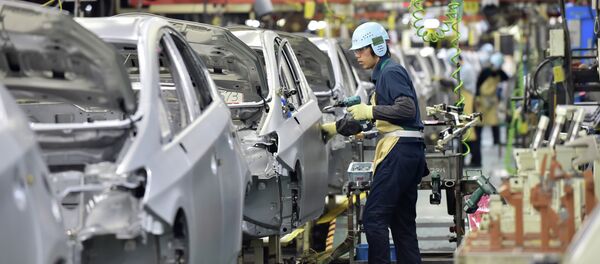Kristian Rouz — The negotiations over Britain's looming separation from the EU have faltered over the past few days, and policymakers, economists, and market analysts are providing contradictory assessments over the future of the UK economy.
After the October summit of EU leaders failed to produce a mutually-beneficial Brexit accord just six months ahead of the UK's planned departure from the union, economists at the Dutch bank ING said the British economy could suffer a major slowdown during the upcoming winter.
READ MORE: EU Summit Ends With Brexit Deadlock, Migration, Security Threats in Spotlight
Experts said a "hard Brexit" could produce a spike in UK fuel prices, as Britain is a major importer of energy. Additionally, possible harsh winter conditions could squeeze domestic consumption — which drives more than 70 percent of the UK's GDP. A projected rise in inflation could add to the UK's economic turmoil, ING economists said.
"For the economy, this could see growth momentum slow again over the winter as uncertainty rises," ING's James Smith said. "With businesses becoming more vocal about the impact 'no deal' would have on operations, households may begin to take a more cautious stance if they gradually become more wary about their job security."
Additionally, mutual tariffs, border controls, and restrictions on the movement of capital and workforce could hamper economic growth on both sides of the English Channel, ING economists warned.
READ MORE: Over Half a Mln of Anti-Brexiteers Call for Second Referendum in London Rally
However, others say labor shortages in the UK, a resurgence in British trade with non-EU countries, and a decline in capital outflows could balance out these possible risks.
"The UK economy has flexibility, it is in its genes to do well, to be innovated," David Folkert-Landau of Deutsche Bank said. However, "the adjustment is going to be painful. It is immature to think this is just two or three percent of GDP," he added.
Meanwhile, Prime Minister Theresa May's alleged inability to strike a "clean Brexit" deal is stirring a growing dissent within her own Conservative Party. Some of her opponents, led by former Foreign Secretary Boris Johnson, are urging a Canada-style trade deal with the EU as the cornerstone of a Brexit deal.
Others, such as Conservative MP Jacob Rees-Mogg and one of UKIP's leaders Nigel Farage, are calling for a "no-deal" Brexit — saying the UK can tackle all of the Brexit-related risks on its own.




